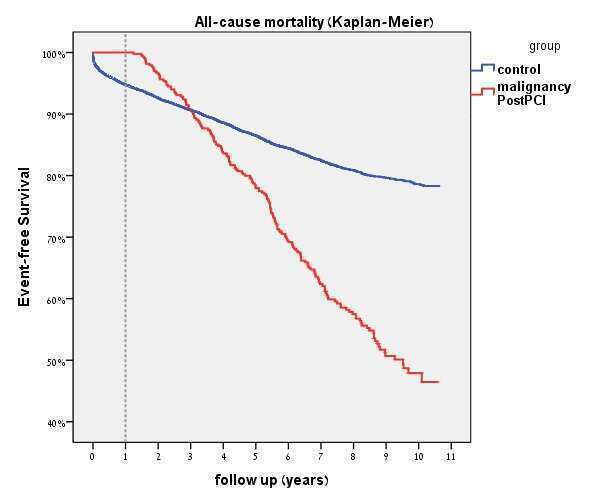Background: Coronary artery disease and cancer share common risk factors and inflammation is believed to play the crucial role in both processes.
Aim: To explore the role between percutaneous coronary intervention (PCI) and subsequent cancer development.
Methods: Data from prospective database of consecutive patients was linked with all subsequent hospitalization ICD-9 codes for all kinds of cancer except non-melanoma skin cancers. The patients with cancer during the first year after PCI were excluded.
Results: From April 2004 to August 2014 were performed 11472 PCIs. Mean age was 67.9 ± 12.2, median follow-up period was 6.8 years. From the whole cohort 435 patients (3.79%) developed cancer. Cancer patients were older (73.7 ± 10.5 vs 67.9 ± 12.0, P <0.001), and suffered more frequently from diabetes (49.0% vs 42.6%, P<0.01) and hypertension (85.8% vs 73.1%, P<0.001). They had significantly more prior heart failure (21.2%) than control group (9.1%), P
Conclusion: After PCI subsequent number of patients develop cancer and their crude mortality rate and recurrent cardiac events at five year are higher than non-cancer patients. Probably, these patients will benefit from close follow-up and aggressive secondary prevention measures in specialized cardio-oncology clinics.


